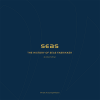Friedrich Nietzsche and the Politics of History
This book explores Friedrich Nietzsche’s understanding of modern political culture and his position in the history of modern political thought. Surveying Nietzsche\'s entire intellectual career from his years as a student in Bonn and Leipzig during the 1860s to his genealogical project of the 1880s, Christian Emden contributes to a historically informed discussion of Nietzsche’s response to the political predicaments of modernity, and sheds new light on the intellectual and political culture in Germany as the ideals of the Enlightenment gave way to the demands of the modern nation state. This is a distinguished addition to the series of Ideas in Context, and a major reassessment of a philosopher and aphorist whose stature among post-enlightenment European thinkers is now almost unrivalled.
• Explores Nietzsche’s political thought in its historical context • Second book from one of the emerging stars of intellectual history • Nietzsche is a figure of huge but still growing interest, with scholars of philosophy, literature, culture, politics and history all having to engage with the implications of his thought
ContentsAcknowledgements, Abbreviations and translations, Introduction, Part I. The Failure of Neohumanism: 1. Philologists, liberals, and the nation; 2. The Austro-Prussian War in Leipzig; 3. The demands of history; 4. Toward a cautious materialism; 5. Teleology and the laws of history; Part II. The Formation of Imperial Germany, Seen From Basel: 1. Intellectual culture in Basel; 2. The practice of cultural history; 3. The need for philosophical education; 4. The ‘German Spirit’ and the Franco-Prussian War; Part III. The Crisis of Historical Culture: 1. The crisis of historicism; 2. What is orientation in history?; 3. The political mobilization of myth; 4. ‘The Soul of the Antiquarian’; 5. The impossible critical historian; Part IV. Political Lessons From Cultural Anthropology: 1. The view from outside; 2. Lessons from anthropology; 3. Metaphor, myth and cultural reality; 4. ‘survivals’: religion and the state; 5. Political realism and the ‘Free Spirit’; Part V. Geneology, Naturalism and the Political: 1. The path to geneology; 2. A natural history of moral communities; 3. Sovereign individuals and the ethic of responsibility; 4. The task of geneology; 5. ‘To translate humanity back into nature’; Part VI. The Idea of Europe and The Limits of Geneology: 1. ‘The creation of the European individual’; 2. Beyond the modern nation state; 3. Political realities in Imperial Germany; 4. Modernity and the limits of geneology.
Nøkkelord: Filosofi Idéhistorie
- Forlag: Cambridge University Press
- Kategori: Filosofi
- Lagerstatus: Ikke på lagerVarsle meg når denne kommer på lager
- Antall sider: 416
- ISBN: 9780521880565
- Innbinding: Innbundet











